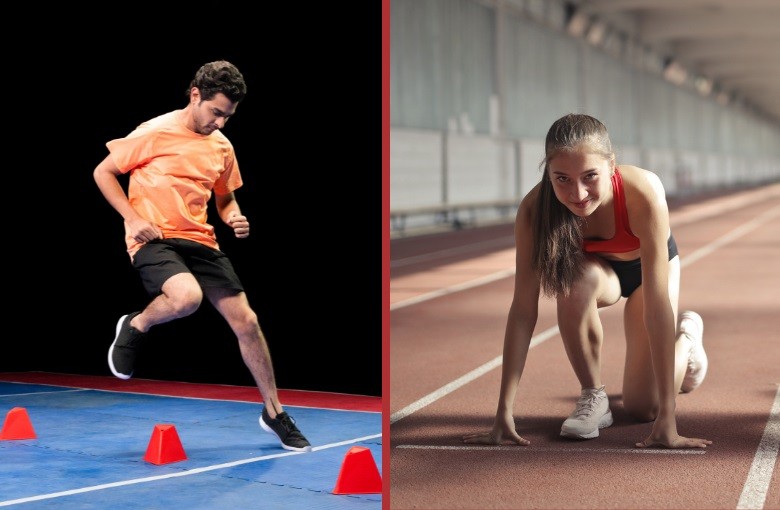Last Updated on May 29, 2025
In the world of sports, raw talent can only take an athlete so far. True champions are those who develop and hone essential skills that form the foundation of athletic excellence. For young athletes embarking on their sporting journey, mastering certain fundamental skills can make the difference between casual participation and long-term success. This article explores the top five essential skills that every young athlete should focus on developing, regardless of their chosen sport.
1. Fundamental Movement Skills
At the core of every athletic endeavor lie fundamental movement skills. These are the basic building blocks upon which sport-specific abilities are constructed. Running, jumping, throwing, and catching form the foundation of countless sports and athletic activities.
Mastering these fundamental skills is crucial because they translate across various sports and physical activities. A young athlete with well-developed fundamental movement skills will find it easier to adapt to new sports and excel in their chosen discipline.
To improve these skills, young athletes should:
- Practice a variety of movements regularly
- Engage in multi-sport activities during early years
- Focus on proper form and technique
- Participate in drills that combine multiple fundamental skills
2. Mental Toughness
While physical skills are visible and often celebrated, mental toughness is the invisible force that can elevate an athlete’s performance to new heights. Mental toughness encompasses focus, resilience, confidence, and goal-setting abilities.
A mentally tough young athlete can maintain concentration during crucial moments, bounce back from setbacks, believe in their abilities, and work consistently towards long-term objectives. These qualities not only enhance sports performance but also contribute to personal growth and success in other areas of life.
To develop mental toughness, young athletes can:
- Practice mindfulness and visualization techniques
- Set realistic but challenging goals
- Learn from failures and view them as opportunities for growth
- Work with coaches or sports psychologists to develop coping strategies
3. Teamwork and Communication
Even in individual sports, the ability to work as part of a team and communicate effectively is invaluable. Teamwork fosters a sense of belonging, enhances motivation, and teaches important life skills such as compromise and collective problem-solving.
Effective communication, both verbal and non-verbal, is crucial on the field, court, or track. It helps in coordinating with teammates, understanding coach instructions, and even in fair play with opponents.
To improve teamwork and communication skills, young athletes should:
- Participate in team-building exercises
- Practice active listening
- Learn to give and receive constructive feedback
- Engage in sports that require strategic team coordination
4. Sport-Specific Techniques
While fundamental skills provide a broad foundation, mastering sport-specific techniques is what sets apart great athletes in their chosen fields. Whether it’s dribbling in basketball, serving in tennis, or executing a perfect swim stroke, these specialized skills are essential for success.
Proper technique not only enhances performance but also plays a crucial role in injury prevention. Young athletes who learn the correct form early on are less likely to develop bad habits that could lead to injuries or hinder their progress later in their careers.
To master sport-specific techniques, young athletes should:
- Work with qualified coaches who can teach proper form
- Use video analysis to study and improve their technique
- Practice regularly, focusing on quality over quantity
- Study professional athletes and emulate their techniques
5. Physical Fitness and Conditioning
Regardless of the sport, overall physical fitness is a non-negotiable aspect of athletic success. The key components of fitness – strength, endurance, flexibility, and speed – contribute to better performance, reduced injury risk, and improved recovery.
For young athletes, it’s important to approach fitness and conditioning in an age-appropriate manner. The focus should be on building a broad base of fitness rather than specializing too early.
To enhance physical fitness, young athletes can:
- Engage in a variety of conditioning exercises appropriate for their age and sport
- Incorporate strength training under proper supervision
- Practice flexibility exercises and proper stretching techniques
- Gradually increase the intensity and duration of training as they grow older
Conclusion
Mastering these five essential skills – fundamental movement, mental toughness, teamwork and communication, sport-specific techniques, and physical fitness – provides young athletes with a solid foundation for success in their sporting endeavors. These skills not only contribute to athletic performance but also foster personal growth, resilience, and lifelong healthy habits.
Young athletes, parents, and coaches need to recognize that developing these skills is a journey, not a destination. Consistent practice, patience, and a positive attitude are key to progress. By focusing on these fundamental areas, young athletes can set themselves up for success both in their chosen sports and in life beyond the playing field.
Remember, the goal of youth sports should always be to nurture well-rounded individuals who enjoy physical activity and develop valuable life skills along the way. By mastering these essential skills, young athletes are well on their way to achieving this goal.
We’d love to hear from you! Share your experiences or ask questions about developing these skills in the comments below. For more resources on youth athletic development, check out our recommended reading list and training programs.

